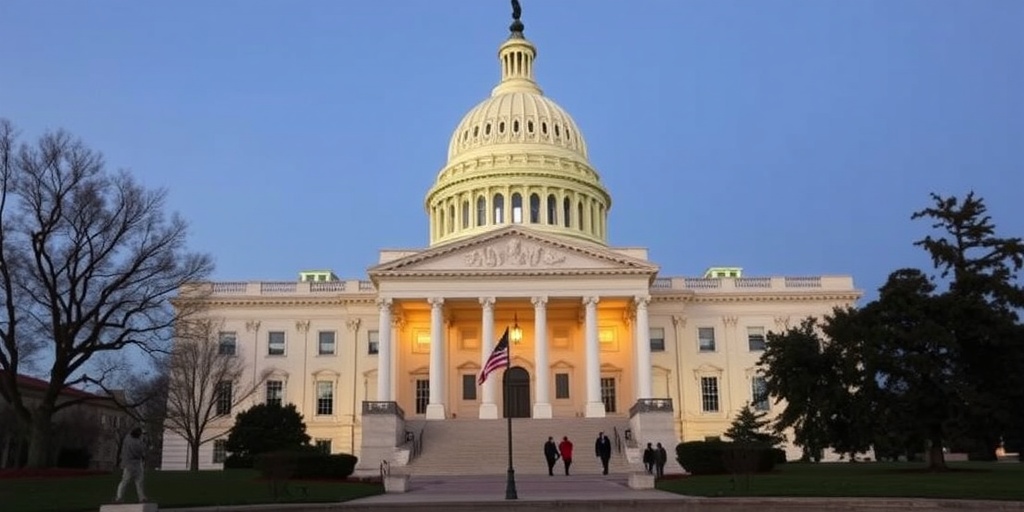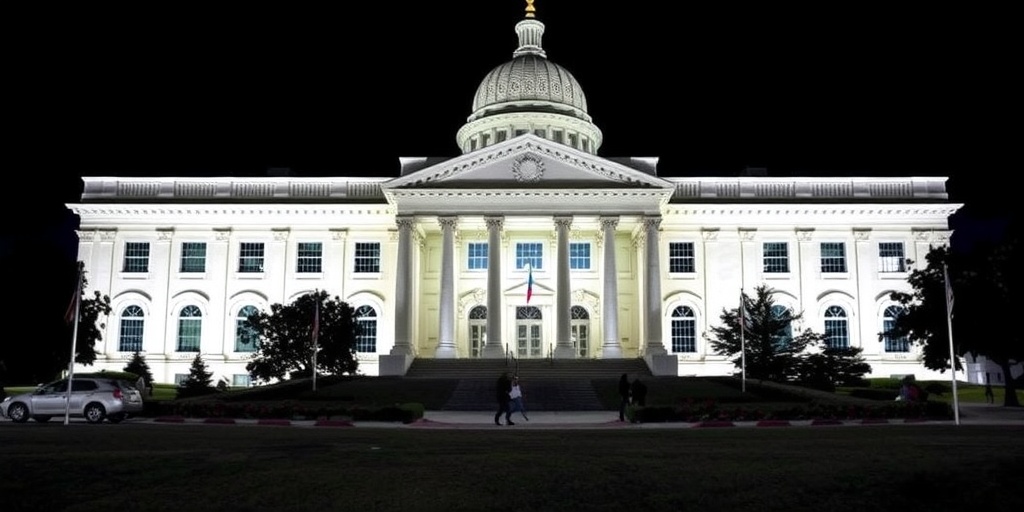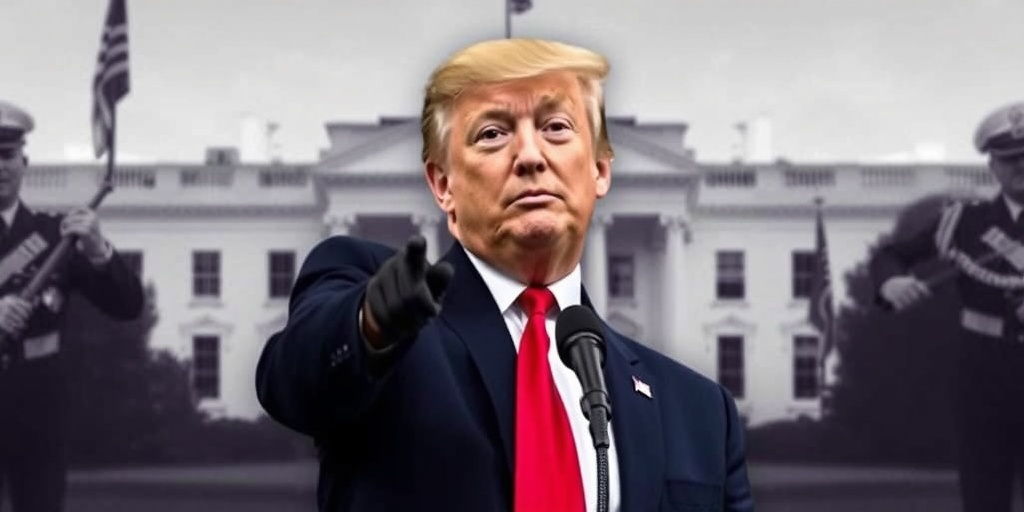Now Reading: Understanding DOGE’s Price Cuts
-
01
Understanding DOGE’s Price Cuts
Understanding DOGE’s Price Cuts

Elon Musk’s Government Cuts: The Ripple Effect of Layoffs
In recent weeks, Elon Musk, the billionaire entrepreneur and CEO of various high-profile companies, has announced his ambitious plans to streamline the federal government through a newly created entity dubbed the Department of Government Efficiency (DOGE). This initiative aims to eliminate inefficiencies and what Musk claims is rampant waste within government operations. However, the precise tally of job losses due to his proposed cuts remains complicated and unclear.
The federal government employs approximately three million individuals, as reported by the Bureau of Labor Statistics. Following Musk’s invitation for federal workers to take deferred buyouts, about 75,000 opted to leave. While this figure seems sizable, it represents merely half the usual number of employees who typically retire or resign annually. Furthermore, reports indicate that at least 25,000 workers have faced layoffs, totaling confirmed job losses and buyouts near the 100,000 mark. However, many experts believe this number underestimates the true impact, as it fails to include countless probationary workers dismissed and later reinstated by judicial decisions.
The potential repercussions of these cuts are starting to manifest across various federal agencies. As reports reveal, the National Nuclear Security Administration has lost key scientists and engineers, critical to their ongoing efforts to modernize the nation’s nuclear arsenal. These personnel often hold top-secret security clearances associated with sensitive national defense information. The resulting loss of expertise could have dire implications for national security.
In another instance, employees from the Social Security Administration voiced concerns over proposed job cuts that could undermine the agency’s infrastructure. This organization is responsible for providing benefits to around 73 million Americans, and some officials warn that reducing staffing could severely hinder their ability to address problems and ensure smooth operations. One union representative described the approach as “firing first and aiming later,” without consideration of the consequences on public service access.
Additionally, the Department of Veterans Affairs is facing operational challenges due to staffing cuts that have brought critical clinical trials to a halt. The absence of essential personnel jeopardizes ongoing research, affecting the development of treatments for advanced cancer patients. Following inquiries from journalists, the department has taken steps to address these staffing shortages.
While the exact number of job cuts remains murky, individual stories of hardship are emerging, indicating that even small-scale reductions can yield substantial, unintended consequences. Many federal agencies had a deadline last week to submit their proposed plans for substantial layoffs, yet not all have been made public. Reports suggest some agencies are struggling to articulate clear and coherent plans, creating an atmosphere of uncertainty among workers.
Musk’s own commentary underscores his perspective on government inefficiencies. In a recent interview with Senator Ted Cruz on the latter’s podcast, “Verdict,” Musk portrayed the DOGE initiative as a venture to target what he estimates to be 80 percent waste and 20 percent fraud in the federal government. He shared anecdotes from his experiences with X, the rebranded platform formerly known as Twitter, where he has sought to cut costs by renegotiating vendor contracts and eliminating superfluous software licenses. Musk hinted at absurdities he encountered, such as agencies possessing licenses for software that exceeded their staff numbers—asserting that a federal agency employing 15,000 people might be in possession of around 30,000 software licenses.
Despite the straightforward approach of slashing expenditures, analysts warn that such cost-cutting tactics may not promote the rigorous reform Musk aspires to champion in the long run. By employing rapid measures to reduce spending, it raises questions about the effects on service quality and overall governance.
In a separate yet related development, President Trump held a car show at the White House, promoting Tesla to a conservative audience in an effort to boost sales. However, market analysts express skepticism about this strategy’s effectiveness, particularly as they predict Tesla will record its lowest vehicle deliveries in three years during the first quarter. With consumer sentiment divided, experts suggest that merely appealing to one demographic may not sufficiently stimulate sales across the broader market.
As the landscape of federal employment continues to evolve and the impact of Musk’s plans becomes more evident, Americans are left to grapple with the possibility of diminished public services amid dramatic budget cuts. Each agency’s capacity to fulfill its essential functions hangs in the balance as federal workers find themselves at the center of this significant shift in government operations. The specter of heightened insecurity envelops both the workforce and the critical services they provide, prompting an urgent conversation about the sustainable management of government resources in an era increasingly marked by austerity.
Stay Informed With the Latest & Most Important News
Previous Post
Next Post
-
 01New technology breakthrough has everyone talking right now
01New technology breakthrough has everyone talking right now -
 02Unbelievable life hack everyone needs to try today
02Unbelievable life hack everyone needs to try today -
 03Fascinating discovery found buried deep beneath the ocean
03Fascinating discovery found buried deep beneath the ocean -
 04Man invents genius device that solves everyday problems
04Man invents genius device that solves everyday problems -
 05Shocking discovery that changes what we know forever
05Shocking discovery that changes what we know forever -
 06Internet goes wild over celebrity’s unexpected fashion choice
06Internet goes wild over celebrity’s unexpected fashion choice -
 07Rare animal sighting stuns scientists and wildlife lovers
07Rare animal sighting stuns scientists and wildlife lovers





















